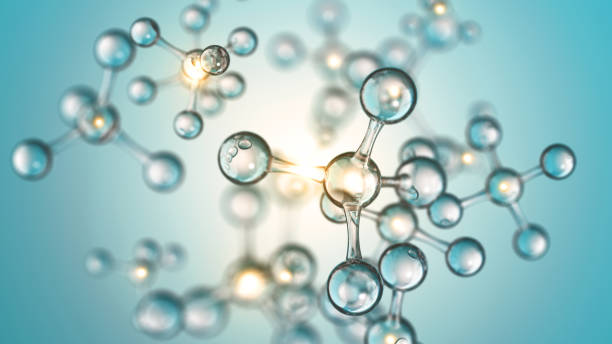Legal Implications of Synthetic Biology: A New Frontier
Introduction: Synthetic biology, the engineering of biological systems for novel purposes, is rapidly advancing. This emerging field promises groundbreaking solutions in medicine, agriculture, and environmental conservation. However, it also raises complex legal and ethical questions that challenge existing regulatory frameworks. As scientists push the boundaries of what's possible, lawmakers and ethicists grapple with how to govern this powerful technology.

Current Regulatory Landscape
The regulation of synthetic biology currently falls under a patchwork of existing laws and agencies. In the United States, oversight is primarily shared between the Environmental Protection Agency (EPA), the Food and Drug Administration (FDA), and the Department of Agriculture (USDA). These agencies rely on laws that were not specifically designed for synthetic biology, such as the Toxic Substances Control Act and the Federal Food, Drug, and Cosmetic Act. This regulatory framework has been criticized for potential gaps and overlaps, leading to calls for more comprehensive and tailored legislation.
Intellectual Property Challenges
Synthetic biology poses unique challenges to intellectual property law. Traditional patent systems struggle to accommodate the complexities of engineered biological systems. Questions arise about what constitutes a novel invention in synthetic biology and how to balance innovation incentives with public access to fundamental research tools. The issue of patenting life forms, which has been contentious since the landmark Diamond v. Chakrabarty case in 1980, takes on new dimensions with synthetic organisms. Some argue for open-source models in synthetic biology to promote collaborative research, while others advocate for stronger patent protections to encourage investment.
Biosecurity and Dual-Use Concerns
The potential for synthetic biology to be used in creating biological weapons or other harmful agents raises significant biosecurity concerns. Policymakers face the challenge of balancing scientific freedom with national security interests. The development of international frameworks for biosecurity in synthetic biology is ongoing, with efforts like the Biological Weapons Convention being updated to address these new technologies. Legal experts are debating how to create effective regulations that prevent misuse without stifling beneficial research.
Environmental and Health Risks
The release of engineered organisms into the environment presents novel ecological risks that current environmental laws may not adequately address. Questions about liability and responsibility for potential harm caused by synthetic organisms are complex and largely unresolved. Health regulations also need to evolve to handle the unique risks posed by synthetic biology products, particularly in areas like gene therapy and engineered probiotics. Lawmakers are exploring how to apply the precautionary principle in this rapidly evolving field while still allowing for scientific progress.
Ethical Considerations and Public Engagement
The ethical implications of synthetic biology extend beyond traditional bioethics, touching on fundamental questions about the nature of life and humanity’s role in creating it. Legal frameworks need to incorporate ethical considerations and public values, which requires mechanisms for public engagement and consultation. Some jurisdictions are exploring the creation of ethics committees specifically for synthetic biology, similar to those used in other areas of biotechnology. Balancing scientific progress with ethical concerns and public acceptance remains a key challenge for policymakers.
International Harmonization Efforts
As synthetic biology transcends national borders, there’s a growing need for international harmonization of regulations. Differences in national approaches to synthetic biology governance can create regulatory arbitrage and hinder global collaboration. Efforts are underway through organizations like the OECD and WHO to develop common principles and standards for synthetic biology regulation. However, achieving consensus on these issues among countries with diverse cultural, ethical, and economic perspectives remains a significant challenge.
Future Legal Landscape
As synthetic biology continues to advance, legal frameworks will need to evolve rapidly. There are calls for new, dedicated legislation to address the unique aspects of synthetic biology. This might include specialized regulatory bodies, novel approaches to risk assessment, and flexible governance models that can adapt to technological changes. The legal community is also exploring innovative concepts like rights for synthetic organisms and new forms of intellectual property protection tailored to engineered biological systems.
In conclusion, the legal implications of synthetic biology represent a frontier as exciting and complex as the science itself. As this field progresses, it will require ongoing dialogue between scientists, policymakers, ethicists, and the public to create a regulatory framework that fosters innovation while safeguarding society and the environment. The coming years will be crucial in shaping the legal landscape for this transformative technology, with far-reaching consequences for science, industry, and society at large.





